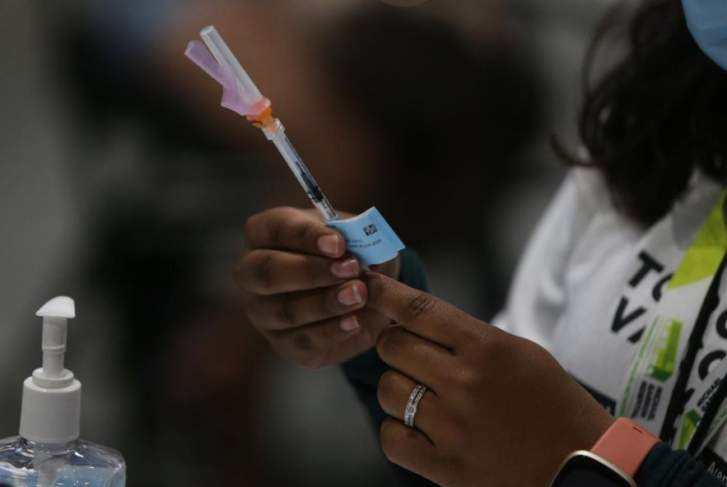Toronto health officials are strategizing how to vaccinate as many as 200,000 elementary schoolchildren — as soon as Health Canada approves a COVID-19 vaccine for them.
The news came Monday as Toronto Public Health reported a worrying surge in positive tests for the youngest school-age kids currently ineligible for vaccine.

Dr. Eileen de Villa, the city’s public health chief, told the health board Toronto’s overall infection rates have remained stable. But the rate for kids aged 4 to 11 jumped since school started to 64 cases per week per 100,0000 residents.
“This is the first time the case rate in this age group has been the highest of all the various age groups,” de Villa said, noting the overall average is about 35 cases per week per 100,000 residents.
She announced a new “COVID-19 vaccination planning group” with her agency, school boards and Ontario’s Health Ministry among members starting to plan the mass immunization of kids aged 5 to 11 as early as Nov. 1.
Vaccine approval for that cohort, expected by experts as soon as this fall or as late as early 2022, is considered key to reducing student infections and outbreaks that can lead to school closures, and preventing the risk of a citywide return to remote learning.
The approval could also hasten the local end of the pandemic by helping boost Toronto’s overall vaccination rate of more than 80 per cent of eligible residents — giving the virus and its virulent Delta variant fewer easy targets to infect.
TPH data shows that Torontonians with both doses of COVID-19 vaccine are 11 times less likely to be hospitalized with the virus, and 25 times less likely to end up in intensive care, than residents with one or no doses of vaccine.
Coun. Joe Cressy, the health board chair, said logistics such as where kids will be vaccinated are being hashed out right now.
“For 12- to 17-year-olds we used a multi-pronged approach with mass immunization clinics, dedicated school clinics, and pharmacy and hospital clinics,” he said in an interview.
“Details are still in the works for 5- to 11-year-olds.”
For any parents hesitant to vaccinate young kids against the virus, Cressy said the rollout will include “multilingual outreach … and dedicated supports and tools to engage parents with questions or concerns.”
One thing the plan won’t include, it appears, is a requirement that young kids be vaccinated in order to continue going to school.
De Villa, the Toronto District School Board and some medical experts are urging Premier Doug Ford’s government to add COVID-19 to the list of nine diseases, including mumps and diptheria, mandatory for students.
A spokesperson for Health Minister Christine Elliott told the Star last week that “the reporting and assessment components of the (Immunization of School Pupils Act) are already being accomplished through existing systems,” including disclosure to health agencies of the vaccination status of infected students.
Omar Khan, a COVID-19 expert at University of Toronto, said in an interview there’s urgency to getting young kids protected, noting they won’t have maximum protection until about two weeks after their final jab.
“If you look at the number of people being infected, young people are really climbing up there — they are a big viral reservoir now,” said Khan, an assistant professor at the Institute of Biomedical Engineering.
“The way Delta (variant) travels so fast, we need a big chunk of the population vaccinated and that really does include people under age 12.”
Dr. Tara Kiran, a family physician at St. Michael’s Hospital Academic Family Health Team, said the student vaccination effort should be primarily schools-based.
That would be the easiest for students and parents, the most efficient for agencies administered the vaccine, and the most equitable because it could be aimed first at schools were children are most at risk of COVID-19, she said, adding there should be tailored options for kids with special needs.
“We want to avoid vaccine ‘Hunger Games’ this time around — we don’t want people competing for appointments where the more Internet-savvy people with more time and language ability can snap up the appointments,” Kiran said.
Article From: The Star
Author: David Rider

